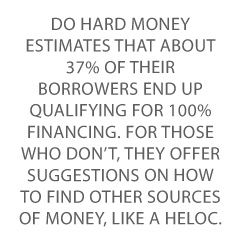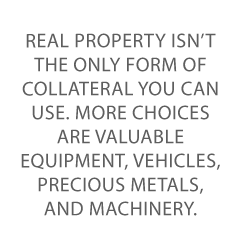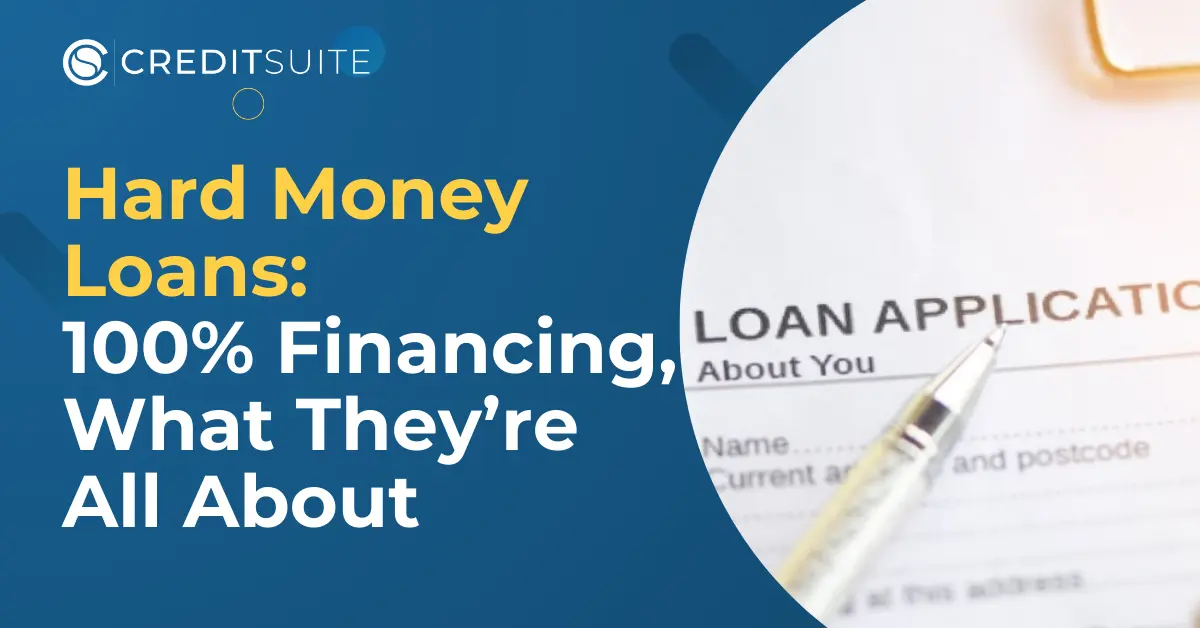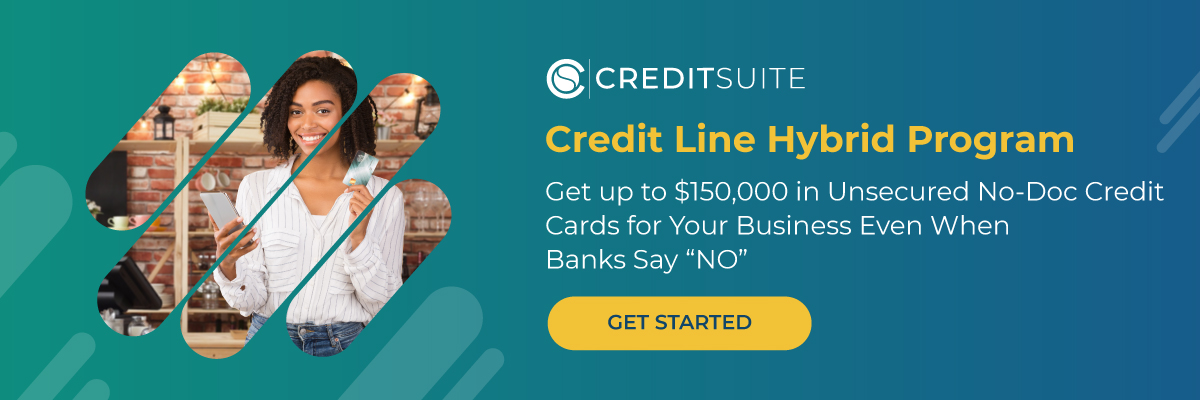Do Hard Money Loans Require Down Payment?
Often, hard money lenders will want a down payment on the purchase equivalent to about 10 – 5% of the purchase price. But if you have a high credit score and you have substantial experience, you may be able to put down less. Given that flippers with bad credit scores are more likely to try hard money financing, they should always expect to put down more of the purchase cost. In general, the down payment will be based on the after-repair value (ARV). The FICO score for the borrower, and their fix and flip experience (if any) will also be factored into the equation.
Do You Need Good Credit for a Hard Money Loan?
Absolutely not!
Because the collateral for a hard money loan is real property, the lender’s concerns will mainly center around the land, such as:
• Do you own it, with the right to sell it?
• What is its value?
• Are there any liens on it?
• What is the condition of any buildings on the property?
Another question hard money lenders may ask will have to do with how much experience you have with flipping houses.
If these questions are answered to a lender’s satisfaction, then hard money lenders will not need to check your credit.
What Can I Use as Collateral for a Hard Money Loan?
Collateral for a hard money loan is real property. A lender will check on the value of the real property and the building or buildings upon it, if applicable. Hard Money Loans 100% Financing Credit SuiteReal property isn’t the only form of collateral you can use. More choices are valuable equipment, vehicles, precious metals, and machinery. All the hard money lender wants to know is what the value of the collateral on offer is. This can be via appraisals or the like. But these loans are usually used in real property as short-term bridge loans. These other forms of collateral are a lot rarer than using the land.
If you have been in real estate for a while, you have undoubtedly heard of hard money loans with 100% financing. But do they really exist? How can you get them? How do you qualify for them?
What are the upsides and downsides of private hard money loans 100 financings?
What is a Hard Money Loan?
A hard money loan is a loan backed by collateral, and that collateral is real property.
Per Investopedia:
- Hard money loans are mainly used for real estate transactions. They are money from an individual or company and not a traditional bank.
- Such a loan, usually taken out for a short time, is a way to raise money quickly but at a higher cost and lower LTV (loan to value) ratio.
- Since hard money lending relies on collateral rather than the financial position of the applicant, the funding time frame is shorter.
- Terms of such loans can often be negotiated with a lender. These loans will typically use the property as collateral.
- Default by a borrower can still result in a profitable transaction for the lender. This is through collecting the collateral.
Terms will often depend on the value of the real property being used for collateral. But it is generally a higher interest rate than a traditional loan.
Costs for hard money loans tend to be higher than for other types of lending. However, because a fix and flipper will pay off the loan quickly, it can be well worth the expense.
Hard money loans are good for a borrower with bad credit, as the real estate determines qualifying and a loan term. It’s a much easier loan for them to get.
How to Get 100% Financing with a Hard Money Loan
The very first thing to do is to simply contact any number of hard money lending companies and ask them if they offer 100% financing. Keep in mind that approval for such a loan will not necessarily get you 100% financing. But there are some ways to be sure you get 100% financing on your project. Can you get a 100 LTV loan?
- Start with a deal that is for less than 70% ARV (after repair value). This includes the purchase price of the property, and rehab and loan costs.
- Have a decent FICO score. While you can get such a loan with bad credit, your chances of getting 100% financing are higher if your FICO score is solid.
- Recognize that lenders will often have dissimilar definitions of 100% financing. For some, it may mean covering the purchase price but not the other expenses, such as the cost of repairs. It’s possible that you would have to cover costs like marketing or business costs.
- Experience with flipping will always help you! Lenders are only trying to reduce their risks. Your successful experience with house flipping provides valuable reassurance to them.
- Check property value versus the limit on the offer. If you have a real estate worth, say, $20 million, but a private money lender will only lend up to $15 million, then you will need to cover your necessary costs some other way.
Best Hard Money Loan Providers
The best hard money loans are going to be the ones from providers where you can get the most money at the best rates. And, read the fine print! Even the best hard money lender may have geographic restrictions on where they will lend money.
Do Hard Money
You can get 100% financing with hard money lender Do Hard Money. Note: they offer funding in only 19 states. Do Hard Money has a good set of calculators and educational articles about flipping houses. They also have software to help you locate the kinds of deals they will finance.
For this lender, 1 00% financing means they are willing to lend up to 75% of a property’s after repaired value (ARV). Hence if you can fit all your costs under that 75% number, then you have a great chance at 100% financing.
00% financing means they are willing to lend up to 75% of a property’s after repaired value (ARV). Hence if you can fit all your costs under that 75% number, then you have a great chance at 100% financing.
They focus only on the profitability of the deal and not on your characteristics or qualifications. Do Hard Money is not looking for a minimum credit score or previous flipping experience. There is no specific down payment required.
Do Hard Money estimates that about 37% of its borrowers end up qualifying for 100% financing. For those who don’t, they offer suggestions on how to find other sources of money, like a HELOC.
LendingOne
Hard money lender Lending One currently offers direct nationwide hard money lending in 44 states. Sorry, Alaska, Nevada, New York, North Dakota, South Dakota, and Utah.
They offer 100% financing on rehab costs, with no interest charged on unused rehab loan funds. They will not provide a fix and flip loan to individuals. They will provide loans for:
- LLCs
- Limited partnerships
- General partnerships
- Corporations
LendingOne also offers a bridge loan for multifamily dwellings. Those range from $1 million to $15 million. They require a minimum occupancy of 70% although they will at times go lower. Terms are 12 – 36 months.
Get pre-approval in minutes. With many commercial loan options, you can close in a few weeks. This is a private money loan from a private investor, which speeds up the process.
For fix/flip loans, LendingOne will ask for:
- Sales Contract
- Construction Budget
- 1-month bank statements
- A list of properties you currently own (an REO Schedule)
- LLC Operating Agreement
AMZA Capital
AMZA offers to fix and flip loans/buy-to-rent loans. While 100 financing is possible, they do not seem to spell out exactly how you can qualify for it.
Their ideal borrowers:
- Have a FICO score of 650 or better
- The minimum purchase price of the property (before rehab) is $75,000 or higher and
- They are experienced flippers with solid teams and more than five flips under their belt
- Or they are first-time flippers working with a mentor and a licensed contractor
- Or they are a real estate investor competing against buyers looking to make an all-cash purchase
Loans run $50,000 – $2.5 million.
For single-family homes, fix & flip, their hard money loan rates, and terms tend to be:
- Term: 12 months
- Time to Funding: 2 weeks
- Rates: 7% – 12%
- Lender Fees: 2% – 5%
- Closing Cost: $995
While you may have to kick in a little money of your own, AMZA has up-front terms that are easy to understand.
Lima One Capital (Rather than a Local Lender or Traditional Lender)
Lima One lends to 46 states and DC. Sorry, Alaska, North Dakota, South Dakota, and Vermont.
Interest and terms on their short-term product, the FixNFlip, start at 12% and go low as 7.99% based on the experience of borrowers. Experience means the number of completed flips in the last 12 – 24 months, even deals not financed by Lima One Capital.
- Tier 1: these are people who have never completed a flip or have completed one deal.
- Tier 2: offers interest of 11% to those who have completed 2 – 4 deals in the last 24 months.
- Tier 3: a more experienced investor who has completed 5 or more flips in the last 24 months.
- Tier 4: elite real estate investors who have completed 15 or more flips in the last 12 months.
They also offer construction loans, new construction, cash-out, transactional funding, and multifamily real estate investment property deals.
RCN Capital, another possibility, has the same geographic restrictions as Lima.
Is Getting a Hard Money Loan a Good Idea?
These loans have pros and cons, like anything else.
Pros include:
- There is no minimum credit requirement: Hard money lenders tend to rely just on the value of the collateral securing the loan and do not take your FICO score into account. This makes them good options for borrowers with bad credit.
- Rather than the loan closing process taking weeks, these loans will generally close in only a few days.
- These loans have short terms: If you expect to repay the loan quickly, even high interest might not add up to a large bill.
Cons include:
- Since a lender isn’t taking your FICO score into account, the loan is considered riskier. Therefore, it will have a higher interest rate than other loan types.
- It has a lower loan-to-value (LTV): With such a loan, you might be able to borrow up to only 75% of the asset’s value. But with a home equity line of credit (HELOC), you could borrow up to 85%.
- If you default on the loan, you’ll lose the asset you put forth to secure the loan. But this is the case with all loans secured by collateral.
Alternatives to Hard Money Loans
SBA 504 Loans
If you are not looking to purchase land or a building for speculative purposes, the SBA 504 can be a great alternative. Per the SBA, you can use one for a range of assets promoting business growth and job creation. These include the purchase or construction of:
- Existing buildings or real estate
- New facilities
- Long-term machinery and equipment
Or you use it to improve or modernize:
- Land, streets, utilities, parking lots, and landscaping
- Existing facilities
But you cannot use a 504 loan for:
- Working capital or inventory
- Consolidating, repaying, or refinancing debt
- Speculation or rental real estate investing
Keep in mind that these loans currently only go up to $5 million.
But you may be able to use a 504 like new construction loans for buildings you would sell, such as condos. But not as a rental property loan and not as commercial property.
It can take a few months to get money. You must have good personal and business credit (with good business credit, you’re also more likely to qualify for a business line of credit—and can use it to help buy appliances, etc.), and provide a lot of documentation. The SBA will want to see you have an investment stake in your own business, too.
But if you can meet the requirements, an SBA 504 loan will be for a much lower interest than these loans.
Commercial Real Estate Loan
These commercial loans are typically made to business entities. These business entities include developers, corporations, limited partnerships, and funds and trusts. The entities are often formed for the specific purpose of owning commercial real estate.
If a business entity does not have a financial track record or any credit rating, then a lender may require the principals or owners of the entity to guarantee the loan. Hence a person (or group of people) puts their property on the line. In case of loan default, the lender can recover from them.
If the lender does not require this type of guarantee, and the property is the only means of recovery for a loan default, this is a non-recourse loan. It means the lender has no recourse against anyone or anything other than the property.
Interest will tend to be higher than on residential hard money loans. There may be other fees adding to the overall cost of the loan. These can include an appraisal, legal, loan application, origination fee, and/or survey fees.
Some costs must be paid upfront before loan approval or rejection. Others apply yearly. This more conventional loan may have restrictions on prepayment, to preserve the lender’s anticipated yield on a loan.
Peer to Peer Lending and/or Real Estate Crowdfunding
Both of these alternatives are all about getting a number of people to each provide a relatively small amount of private money. That is, If 1,000 people provide an average of $1,000 apiece, then their combined efforts equal $1 million. Each person is a private lender.
With peer-to-peer lending (from places such as Upstart), you can get a loan from a number of people and then pay it back. But interest may be high.
Often, you must have a FICO score in the 600s to qualify. The loan amount might not be too high.
Real estate crowdfunding is similar but, instead of 1,000 lendings an average of $1,000 apiece, those people are using that private money to invest in your property’s equity (that is, purchase some of it). These come from sites such as Crowdstreet.
Since the only people who can invest in Crowdstreet are accredited investors, that means they are individuals with a great deal of personal wealth. As a result, the properties they are working with are a lot more expensive.
PeerStreet is slightly different in that it allows people to invest in real estate debt. Since those investors can put their money into residential properties, the amounts are lower. Lenders can even sell loans via PeerStreet.
FAQs
Do Hard Money Loans Require Down Payment?
Often, hard money lenders will want a down payment on the purchase equivalent to about 10 – 5% of the purchase price. But if you have a high credit score and you have substantial experience, you may be able to put down less.
Given that flippers with bad credit scores are more likely to try hard money financing, they should always expect to put down more of the purchase cost.
In general, the down payment will be based on the after-repair value (ARV). The FICO score for the borrower, and their fix and flip experience (if any) will also be factored into the equation.
Do You Need Good Credit for a Hard Money Loan?
Absolutely not!
Because the collateral for a hard money loan is real property, the lender’s concerns will mainly center around the land, such as:
- Do you own it, with the right to sell it?
- What is its value?
- Are there any liens on it?
- What is the condition of any buildings on the property?
Another question hard money lenders may ask will have to do with how much experience you have with flipping houses.
If these questions are answered to a lender’s satisfaction, then hard money lenders will not need to check your credit.
What Can I Use as Collateral for a Hard Money Loan?
Collateral for a hard money loan is real property. A lender will check on the value of the real property and the building or buildings upon it, if applicable.
 Real property isn’t the only form of collateral you can use. More choices are valuable equipment, vehicles, precious metals, and machinery.
Real property isn’t the only form of collateral you can use. More choices are valuable equipment, vehicles, precious metals, and machinery.
All the hard money lender wants to know is what the value of the collateral on offer is. This can be via appraisals or the like.
But these loans are usually used in real property as short-term bridge loans. These other forms of collateral are a lot rarer than using the land.

